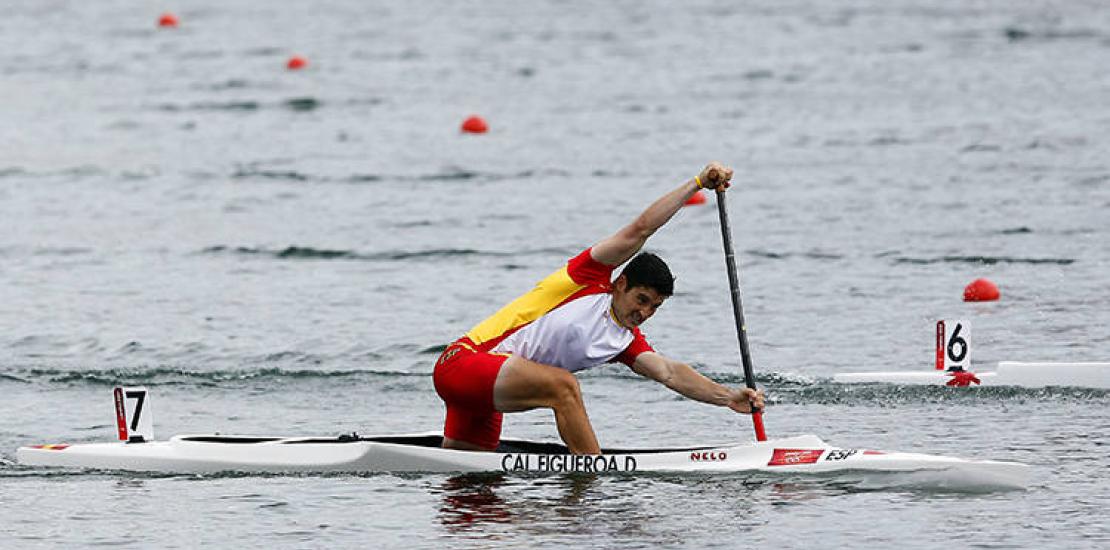David Cal: “UCAM opened its doors for me and I am happy to be a part of this project”
How did you spend the confinement?
I handled it the best way I could. At first it was hard, because you switch from your normal life to being confined. In my case, it helped me quite a lot to keep working from home since I preserved my routine and, in my free time, I looked for other activities that helped me to keep myself entertained. Otherwise, I’m sure it would have been a lot harder.
Do you still hop on the canoe, every once in a while, to do some strokes? Do you miss it?
Ever since I retired, a lot of things have changed. I’ve only used a C1 on rare occasions, and that is something that I miss. I train the university team of C10 (10 persons canoe) and I generally row with them quite often to kill my craving.
When you ended you career you moved to Murcia and you started working at UCAM. What does this bring to you and how do you value the support to sports that is provided by the university? What is your mission in the university?
When I retired, I did not know what I was going to do. After devoting my entire life to canoeing and competition, I was unable to find something that would fill that void. UCAM opened its doors for me and I am happy to be a part of this project that helps hundreds of athletes. I work at the Sport Service where I manage the sport activity of the University together with my colleagues, and I am in charge of the canoeing team.
Tricky question: are you afraid that your friend Saúl may take you down from the highest position in the Olympic podium?
Saúl is excellent both in sport and as a person. I am sure he will do great in Tokyo and no one is better than Saúl to take me down from the highest position in the Olympic podium.
We know you like animals, nature and that sometimes you have said that you are distracted. What is the weirdest thing you have ever forgotten?
I have always been a lover of nature and of animals. It is true that I am distracted, the weirdest thing I have ever forgotten probably is the knee pad of the canoe (the part where you place your knee) in the World Cup of Duisburg of 2003. I was able to get one, but it took me one hour to adapt it to me.
Lastly, since you are a legend of Spanish sport: what advice would you give to the young athletes who want to be like you?
My advice is to practice a sport they like, to enjoy it and to avoid being obsessed with the results.
Tell us the anecdote regarding that time in which Alejandro Blanco, president of Spanish Olympic Committee (COE), went to look for you before the Olympic Games of Beijing.
In the preparation of the Olympic Games of Beijing, during the last months, we stayed in Saucelle (Salamanca), where the climate and the conditions of the water were perfect for the adaptation to the Shunyi track. The problem is that it was a quite hidden place and hard to find, and when Alejandro came to visit us, he had quite a hard time finding us.




